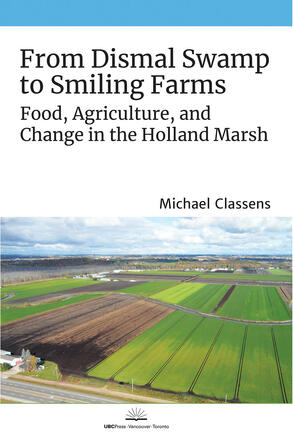
From Dismal Swamp to Smiling Farms
Food, Agriculture, and Change in the Holland Marsh
From Dismal Swamp to Smiling Farms reveals how some of the most profitable farmland in Canada has been shaped, and ultimately imperilled, by liberal notions of progress and nature.
Description
Driving through the Holland Marsh one is struck immediately by the black richness of its soil. Located just north of Toronto, this is some of the most profitable farmland in Canada. It is also a canary in a coal mine. From Dismal Swamp to Smiling Farms recounts the transformation, use, and protection of the Holland Marsh, demonstrating how liberal notions of progress and nature have shaped, and ultimately imperilled, this small agricultural preserve. This fascinating case study reveals the contradictions and deficiencies of contemporary farmland preservation paradigms, highlighting the challenges of forging more socially just and ecologically rational food systems.
Reviews
"Classens, an expert on social and environmental justice within the food system, draws on firsthand experiences of the Holland Marsh from interview data combined with review of an ample literature to produce this detailed case study."
- M. H. Albro, Clemson University